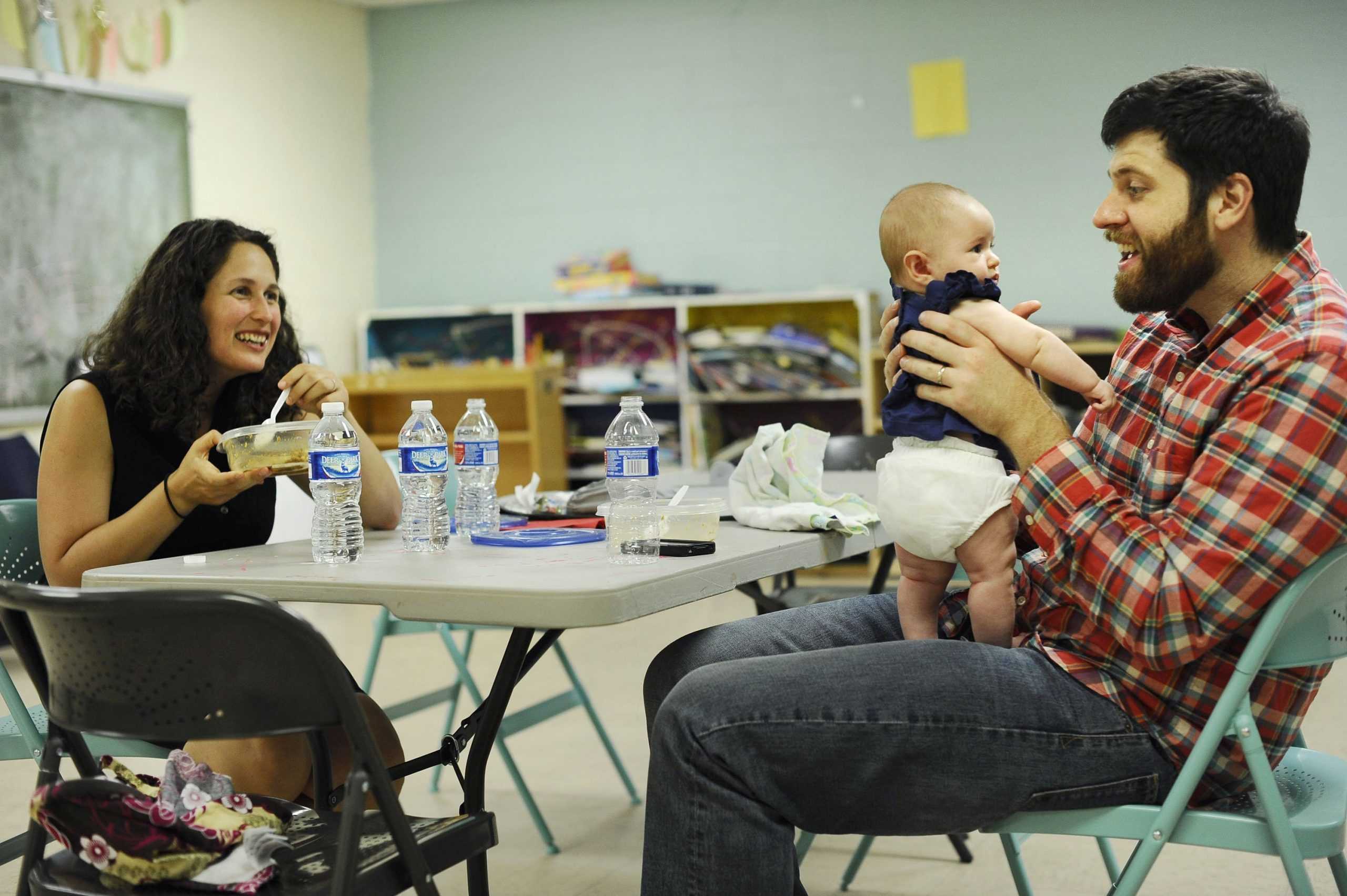When Angela Mazaris came back to her job as the director of the LGBTQ Center 11 weeks after having twins, it was difficult for her to even have a conversation with someone without bursting into tears.
“I was so unbelievably exhausted,” Mazaris said. “[My partner and I] were still sleeping at 45-minute increments at night. I would nurse one of them, and then nurse the other one, and then they both needed bottles because I didn’t make enough milk for them … We would finish all of that and then we would literally have 30 to 45 minutes of time to sleep before they would wake up and start the whole process over again.”
As a full-time staff member, Mazaris is entitled to six weeks of paid parental leave under university policy.
She then used five weeks of paid time off in order to stay home a little longer with her newborn twins.
Mazaris’ partner, who also works at the university, was not provided any leave, because Mazaris had declared herself as the primary caregiver.
“This is actually kind of difficult to talk about, because I was really angry,” Mazaris said. “I just felt so full of anger at the world, at our national policies around paid leave and time off, at the university even, that I was coming back to work incredibly sleep deprived with these two new tiny little people who I was also having trouble finding quality daycare for.”
Wake Forest’s parental leave policy for faculty, however, is different than the policy for staff.
Faculty are entitled to one semester off, with full salary and benefits, if they are tenured, on the tenure-track or are “teaching professionals on fixed term contracts at the rank of instructor or above,” according to the leave policy.
After that semester, faculty may take an additional semester of unpaid leave if the purpose is to continue caring for the newborn or newly adopted child.
This semester of leave may be taken by either a female or male professor. However, if both partners work at the university, only one is eligible for any leave, and that partner must declare him or herself as the primary caregiver for the child. After six weeks, though, the faculty member on leave is expected to return to their research duties.
“The faculty and the staff plans are very different … Faculty get a semester off, and this was the other thing that made me incredibly bitter. I teach in the Women’s and Gender Studies department in addition to running the LGBTQ center, and I think a lot of people think of me as faculty in some contexts,” Mazaris said. “It really highlighted for me the huge discrepancy in our policies, and how our faculty are not given special treatment, but frankly given what everyone should have, which is six months to recover from having a child and to get your life back in order.”
Wake Forest’s parental leave policy in its current form was fully developed in 2010. Before that, faculty and staff members would make do by reducing their class load, asking colleagues to cover for them or cobbling together “parental leave” through paid time off, medical leave and unpaid leave.
“We felt pretty strongly that that puts undue pressure particularly on junior women faculty. It’s a difficult position to be in to rely on folks outside of policies to pitch in,” said Rebecca Thomas, senior associate dean of faculty, who was instrumental in the formation of the university’s current leave policy.
“It’s really a very generous policy and is in line with our progressive peer institutions.”
At the federal level, there is no mandatory paid parental leave, although the issue is already getting a great deal of attention in the presidential election.
The only leave required by law is covered under the Family and Medical Leave Act of 1993, which provides 12 unpaid weeks each year to employees for the birth of a child, to care for a sick family member or to treat a personal health condition. One of the major issues facing parental leave policies, said Thomas, is the tremendous cost of implementing such programs.
“Everybody obviously is directly impacted when they have a child, and we want both parents to be engaged and involved,” Thomas said. “But from a financial standpoint it’s a little bit tough because we really cannot afford to be supplying full paid leave to people who are not actually going to be the primary caregiver.”







